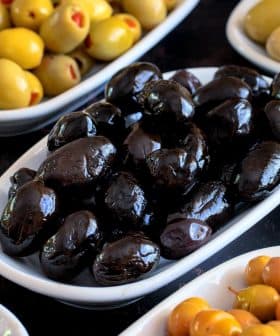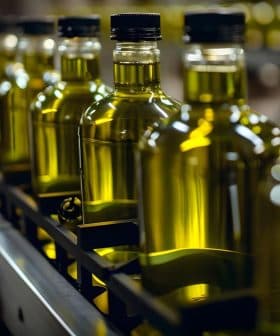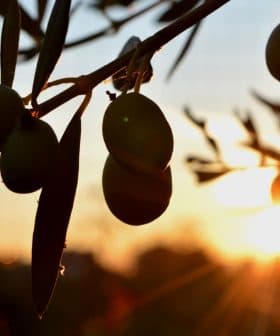Deoleo Muscles Mills for 'Never Seen' Terms as it Moves to Hybrid Oils
Deoleo, the world’s leading olive oil bottler, faced a “price massacre” by retail chains leading to a shift from inventories of two months to just two weeks, with store brands benefiting the most from aggressive pricing policies. Despite challenges in Spain and Italy, Deoleo’s profit lies in the US and beyond, with margins 3 – 4 times higher in the US and plans to pursue innovation in hybrid oils for health.
Its recent long-awaited strategic review lifted the veil on radical changes at olive oil giant Deoleo. In the second half of our series on it, we look at the price war with store brands, why Deoleo moved from inventories of two months to just two weeks, and how lots of olive oil is sold in Spain and Italy but the profit lies in the US and beyond.

He’s been called the most powerful man in olive oil but even Jaime Carbó wasn’t able to prevent what he called a “price massacre” by retail chains.
Usually it’s Spain’s agricultural unions who complain about olive oil being used as a loss leader and prices not covering growers’ costs, but now it’s the world’s leading olive oil bottler, Deoleo (formerly Grupo SOS).
And Carbó, the Madrid-based company’s CEO, said that even worse, it was amid what he considered a “brutal” rise in the ex-mill price of lampante oil and a dip in consumption in the countries that account for about 60 percent of Deoleo’s sales — Spain and Italy.
Deoleo’s summary of the situation in its half year results report was matter-of-fact: “The retailers have used the traffic-generating character of the product to practice a very aggressive pricing policy, at times even below cost, that have forced us to increase our promotional activity.
“Private labels have been the main beneficiaries in terms of market share, although their volumes have suffered as well after setting prices in many cases below the spot price of the raw material,” it said.
Store brand bottles were cheaper than bulk lampante
But speaking at the presentation of Deoleo’s third quarter results and strategic review at the Madrid Stock Exchange last month, Carbó was less reticent.
He used the term “a massacre at the hands of the store brands” to describe the situation from last August to this April when supermarket chains were selling private label refined olive oil at below the bulk price of lampante oil.
Commenting on a graph displaying the data (1), he said that during this period, “the sector — the complete value chain — was losing money at the most basic level.”
“The retail price in January 2013, €2.26, didn’t cover the cost of bulk olive oil, which was €2.65, and neither did it cover the bottle, transport, amortization, labor, electricity, taxes, transport from the factory to the store, the costs of the store, the margins of the store, and of course not sales tax either.”
“Many big retail chains are willing to lose money on olive oil in order to generate traffic so that later people also pass to the detergent aisle, or whatever, I have no idea.”
“That was the competitive context in which we found ourselves. and that’s fruit of the competition there is in the retail sector,” he said.
“Incomprehensible” falloff in Spanish and Italian olive oil consumption in early 2013
The first half of this year was a time of considerable upheaval in Spain and Italy, which affected consumer sentiment and — to a degree never before seen — olive oil use, Carbó said.
“We saw declines of 7 percent and 10 percent in units, which is incomprehensible for a product that is of such necessity in Spanish cooking.”
Deoleo’s sales revenues of €587.2 million for the nine months ended September 30 were down 6.3 percent on the same period last year. However, it managed to reduce its net financial debt by €97 million — largely due to a radical new approach on working capital.

Source: Deoleo
Just in time inventory shake-up
Deoleo admits its revolution of working capital met considerable resistance.
When it started to look at how to reduce its inventory, the word ‘impossible’ was heard a lot within the company, Carbó said. “But now we don’t talk about two months of inventory but two weeks.”
The world’s biggest olive oil buyer now applies the “just in time” principle to both its raw materials and stocks of finished goods, and in the process has freed up cash.
In 2010 it had nearly €177 million of its working capital tied up in inventory but by this September it was under €110 million.
“And that’s what permits you to sit in front of farmers, producers, people who have a protracted financial problem — because their process is so lengthy from when they prepare an olive tree until they sell its olive oil can take 18 – 20 months — and to tell them, well it will have to be 22 because if not, the system won’t work,” Carbó said.
And not only that but producers are also now effectively financing Deoleo to the tune of €190 million — the amount to which Deoleo has increased its level of accounts payable.
Producers required convincing on new payment terms
Carlos Jiménez Ot, general manager of purchases, logistics and quality, said optimizing its working capital was essential for a company based on raw materials (70 percent of its costs), but it had been hard to make changes in a sector where producers had traditionally been paid before a transport tanker was even filled.
Jiménez Ot said Deoleo had worked to gain the trust of its suppliers, reassuring them, ” ‘Hey, we’re Deoleo, we’re going to pay you in 30 days, we’re going to pay you in 60 days.’ We share our market data with our suppliers (telling them) it’s in your interest to fix a price today because we know that the harvest is going to be good, because these are the forecasts.”
“When you take an open book approach with your suppliers you gain their confidence to the point that now we have minimal working capital. We have a level of financing that’s never been seen in this sector.”
Jiménez Ot claims none of the producers has complained. “They’re delighted because we keep our word,” he said.
Deoleo’s production forecasting model
The data that Jiménez Ot referred to sharing with producers is the product of years of work and an “amazing statistical job” of correlating historical data, such as on rainfall, sunshine and temperatures, with production.
“We want to know what the production will be next year and within the next two years because, for better or worse, the price of olive oil is extremely closely related to the quantity available,” Jiménez Ot said.
“We are enormously lucky that the majority of olive oil is produced in a very concrete zone. And even better, the quantity depends on factors that have occurred in the past, meteorological conditions.”
“If I can predict with a lot of precision what is going to happen tomorrow, and the next day…I have valuable information to guide my buying policy,” to “determine in advance how much to buy and where.”
And not just in Spain — where Deoleo estimates olive oil production this season could exceed 1.4 million tons — “in Italy and Greece, in any location,” Jiménez Ot said.
“We don’t know what the olive oil map is going to be like in ten years but today Deoleo knows perfectly well what’s happening in California, Chile, Argentina, and Australia, and we know perfectly well what’s happening in Córdoba, in Sevilla, in Puglia, in Sevilla, and in Greece.”
Hedging
Carbó said the prediction model was good at predicting trends and guided the company’s decisions on when to increase its raw material inventories. When ex-mill prices are expected to rise, more oil is bought.
Deoleo doesn’t tend to use the olive oil futures market, “because there is not enough liquidity in it.” Instead it locks in contracts to provide physical hedging, he said.
The hybrid oils health platform
Deoleo is pursuing a new route of innovation based on selling hybrid oils and capitalizing on the fact that “health is the most important trend in food.”
One research line is focused on Deoleo’s seed oils business and developing “superior” alternatives to “basic oils,” the company said in documents on its mid-term strategic review.
Deoleo products lead Spain’s sunflower oil market and the company is also active in corn oil and other seed oils.
Another line focuses on olive oil, and “striving for better nutritional and health properties.”
Trademark applications for names including Carbonell Optimax and Carbonell Olivemax
In discussions of olive oil and health, the importance of extra virgin olive oil and its higher levels of polyphenols such as hydroxytyrosol are often emphasized.
But Deoleo’s strategic review makes no mention of virgin olive oil. Gregorio Jiménez López, who advises Deoleo on strategy and innovation, talked about the addition of different oils, “cheaper than olive oil” and resulting in “oils of much more nutritional and health value and at a lower price.”
Carbonell is the brand that will support the health concept development and Deoleo said new products will be launched next month but gave no details.
However, the company’s recent trademark applications in Spain cover the following terms: Carbonell Optimax, Carbonell Optima, Carbonell Olivemax, Ergoptim, Ergoadapt de Carbonell, Carbonell Kids, Carbonell Kidds, and the Spanish equivalent of “Carbonell 0.4 helps care for your heart.”
And in its 2012 annual report, the purchase of Omega 3 and hydroxytyrosol for €131,000 from the supplier Biosearch was declared under smaller purchases and sales to companies related with board members.
Olive oil still profitable — beyond Italy and Spain
Deoleo is not abandoning its traditional olive oil business, however. It says the new model based on innovation and health will complement it.
Jiménez López said olive oil remained a basic pillar. “It’s very important because when you go beyond the traditional markets, the profits are frankly high. There are returns of 15 – 20 percent on olive oil,” he said.
Company documents show that in the year to September, Spain accounted for a quarter of Deoleo’s global sales but under 6 percent of its EBITDA. North America, meanwhile, covered a fifth of sales and two fifths of EBITDA.
(EBITDA — earnings before interest, tax, depreciation and amortization — is a broad gauge of a company’s financial health.)
Deoleo’s per-unit profit margin rose from €0.20/liter in 2011 to €0.30 last year and €0.32 in the year to September. Its margin per liter is €0.20 in Spain and a little higher in Italy, both very saturated markets within wider crisis environments.
Margins 3 – 4 times higher in the United States
But Alberto Gallardo, director of international markets, said that in other markets, margins are 5 – 10 times higher.
Carbó said Deoleo made 3 – 4 times more in the US — where the company’s Bertolli is the top-selling brand and stablemates Carapelli and Carbonell also have major market shares — than in Spain. “And in the US a lot of olive oil is sold — in the US they consume 300,000 tons of olive oil a year,” he said.
“All the effort you make to sell olive oil in Spain and Italy you have to do because it helps you with volumes but not with profit. Profit you have to seek in other countries…hence our model of internationalization,” he said.
Markets such as the US, Canada, Mexico and Brazil helped compensate, he said.
Apart from its premises in Europe, Deoleo now has offices in the US, Canada, Brazil, Mexico, Australia, China, India and Malaysia, and says more will follow.
Rising store brand dominance
Deoleo says Euromonitor data shows its brands Bertolli, Carbonell and Carapellia are respectively the world’s first, second and fourth leading olive oil brands, with market shares of 5.1, 3.6 and 2.2 percent.
But the private labels — also known as store and house brands — are a major force in the world’s three biggest olive oil markets
In Spain, the store brands’ combined market share lept from 58.6 percent last year to 68.7 percent for the first three quarters of 2013, while Deoleo’s shrank from 14.4 to 11.6 percent. The Italian market is more brand oriented but even so, the store brands went from 22.1 to 23.2 percent and Deoleo from 24.9 to 23.1 percent. And in the US the store brands grew from 32.6 to 35.7 percent while Deoleo slid from 19.6 to 18.6 percent.
Consumption up in third quarter
Deoleo’s net profit for the first nine months of the year was €9.1 million, up on a net loss of €1.2 million for the same period in 2012, but its EBITDA for January-September, €50.1 million, was down nearly 20 percent.
However according to the company, it entered a period of recovery in the third quarter when consumption in Italy and Spain started to improve, the price of raw materials stabilized at a lower level, and the growth of store labels slowed.
It says it is on track to end the year owing €500 million, down from €624 million last year and €1.5 billion at the end of 2009.
Deoleo seeks investors
Earlier this year it was reported that Spanish banks including Bankia and CaixaBank had asked J.P. Morgan to handle the sale of their holdings in Deoleo. Bankia is Deoleo’s biggest shareholder and is being pushed to divest under conditions of a European bank bailout last year.
Last month, Deoleo announced it had also commissioned J.P. Morgan, to advise, among other things, on a financial restructure in order to improve its long-term financial stability.
Carbó said Deoleo had too much debt and to reduce it the company could look for money from banks — “which they’re not going to give us” — or capital from new shareholders. As some of Deoleo’s shareholders are being obliged to divest, J.P Morgan had been asked to advise on how to address these three aspects at the same time, he said.
“It really marks the start of our new phase, we’re resolving the last theme from the past,” he said.
Deoleo’s share price reached a 52-week high of €0.515 on Nov 28, 2013.
References:
1 — see page 17 of Deoleo’s third quarter results in English (link below)
- Video of presentation of Deoleo’s third quarter results and strategic review at the Madrid Stock Exchange, November 8, 2013 (in Spanish)
- Deoleo’s third quarter results (in English)
- Deoleo mid term strategic review (in English)
- Financial information published by Deoleo
- Deoleo’s ‘Radical Transformation’
- Deoleo calls for new names for olive oil grades









